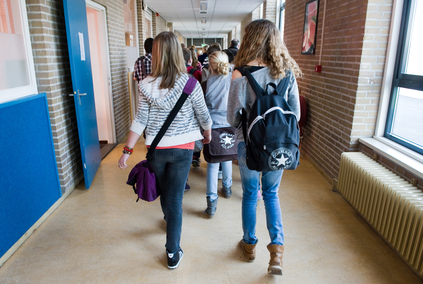Lousy work? Parents less keen to volunteer to help out at schools


It’s a job that has inspired a television comedy and done well for sales of nit treatment. But a new study reveals that in the last five years it has become harder to find parents willing to be the “louse mother” or father, checking infant children’s heads for beasties.
This isn’t the only extra-curricular activity that is struggling for assistance in the Netherlands. A survey of 500 primary school teachers by the DUO Onderwijsonderzoek & Advies research group found that two-thirds of teachers are finding it harder to enlist parental help for activities such as school trips and parties.
Fewer parents are reportedly as willing to sign up for parents’ committees, and schools struggle more to find volunteers to cycle with children to out-of-school activities.
The survey did not ask teachers about why parents were less likely to volunteer or the effects of a recent increase in the number of working women. Teachers said, however, that schools rely heavily on parental help and that sometimes activities cannot go ahead if they are not available.
‘We didn’t look at why this was in this study,’ said DUO Onderwijsonderzoek & Adviesteam leader Liesbeth van der Woud. ‘But there are a lot of reactions from parents and teachers online saying that many are very busy, many work and some want more time for themselves: it seems to come down to a lack of time.’
In the context of school work, around half of respondents found that parents have become more likely to scrutinise how well teachers support their children’s achievement in exams in the past five years. Three-quarters also said parents act more like ‘consumers’ and view schools as service providers with obligations towards them.
‘This is in line with contemporary trends, more individualisation in society and an increase in the pressure for results, with parents wanting their child to score as high as possible,’ said Van der Woud. ‘We cannot tell whether this has increased statistically, though, as this is the first time we have asked these questions.’
The survey, conducted in May, comes at a troubled time in Dutch education. Primary and secondary school teachers nationwide have mounted three strikes in the past two years protesting for better working conditions and higher wages, and teacher shortages have meant some schools even asking parents to substitute when a teacher cannot be found.
Other studies by the DUO Onderwijsonderzoek & Advies show an increase in pressure on teachers due to larger class sizes, a greater administrative burden and government requirements from 2014 to support the needs of the individual child.
Meanwhile, national surveys on child happiness – which exclude children with special learning needs – have found that although Dutch youngsters are generally happy, stress levels are building.
Thank you for donating to DutchNews.nl.
We could not provide the Dutch News service, and keep it free of charge, without the generous support of our readers. Your donations allow us to report on issues you tell us matter, and provide you with a summary of the most important Dutch news each day.
Make a donation